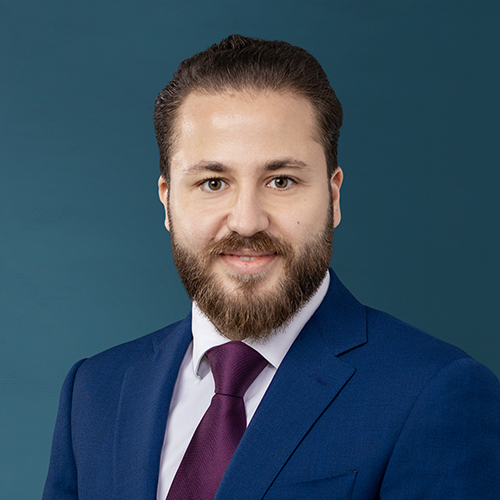Majd Nasrallah discusses the Saudi legal landscape in this article for International Construction Law Review entitled “Exploring the Saudi Legal Landscape: An In-Depth Examination of the New Civil Transactions Law in the Context of FIDIC Time Bar Clauses”. He explores the intersection of FIDIC contracts and the duty of good faith in Saudi Arabia with an analysis that delves into the compatibility of time bar clauses within the region’s legal principles, particularly under the new Saudi Civil Transactions Law. By comparing Saudi Arabia’s legal framework with neighbouring jurisdictions that blend Sharia law and Civil Code elements, the research highlights key alignments, challenges, and shared considerations shaping the legal landscape of the Middle East.
The International Construction Law Review is the leading authority on international construction law and provides critical information in areas ranging from procurement, project partnering, subcontracting, environmental issues, delay and disruption in construction contracts, trends in dispute resolution and alternatives to the FIDIC conditions.
Click below to read the article (subscription required).
Secretariat is delighted to share highlights from our time at Dubai Arbitration Week 2024. From engaging events to innovative discussions, it was an honor to participate in an incredible lineup of events.
Monday, November 11
Amit Garg kicked off Secretariat’s participation in the week’s events, speaking on a panel titled “Debate: Delay Experts in Construction Arbitrations Go Too Far — Where is the Correct Evidential Line?” alongside Sarah-Jane Fick (Dubai Holding), Alexa Hall (Clyde & Co LLP), and Richard Harding (Keating Chambers).
The discussion, featuring leaders in international construction arbitration, explored competing perspectives, identified where delay experts overstep the correct evidential boundaries, and considered how such experts can be most effectively used in complex, high-value construction arbitration.
Later in the day, Cameron Postlewaight spoke at the Chartered Institute of Arbitrators (CIArb) Young Members Group, UAE Debate Series event “Expert Oral Evidence Should be Limited to ‘Hot-tubbing’ Only.”
Moderated by Melissa McLaren MCIArb, the intriguing debate also featured Nisreen Bitar-Wall, Ciaran Coates LLM (MRICS, FCIArb), and Sercan Kocamanoglu.
Tuesday, November 12
On Tuesday evening, Secretariat and Fulcrum Capital hosted a networking and cocktails event at the Sunken Garden in the Ritz Carlton DIFC. The event was a great success, providing a vibrant, relaxed setting for professionals to connect and share insights. Attendees enjoyed a selection of fine cocktails and hors d’oeuvres while engaging in stimulating conversations about the state of arbitration today and tomorrow.
It was wonderful to see so many familiar faces and meet new colleagues who are passionate about advancements and growth in our industry. Thank you to everyone who joined us for this memorable evening.
After our cocktail event, Secretariat continued the festivities at the DALADs dinner. Secretariat attendees included Mike Saulsbury, Nick Child, Natasha Willicombe, Stuart Allan, Ian Greenhough, and Ralph Stobwasser.
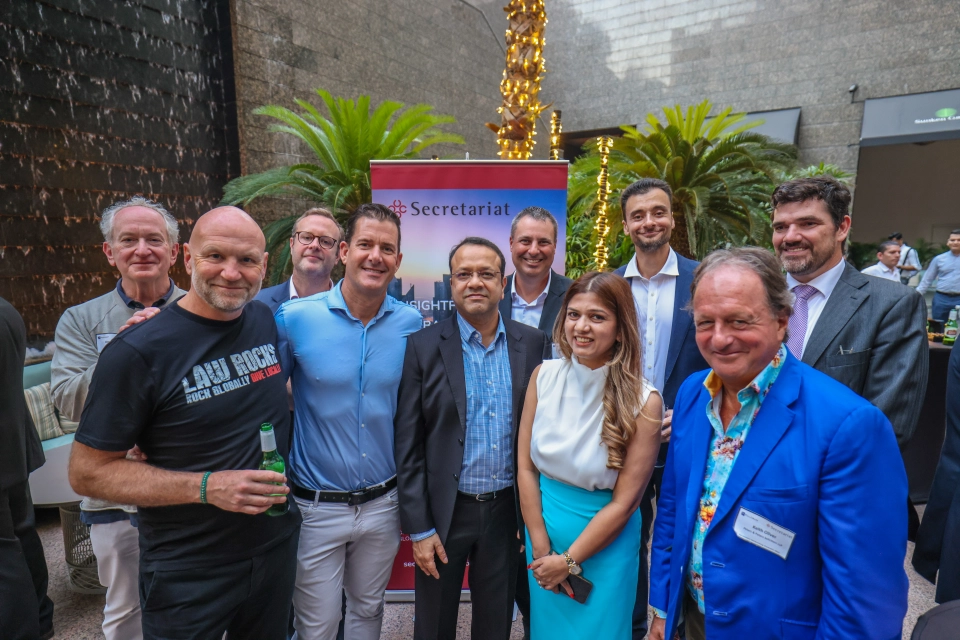


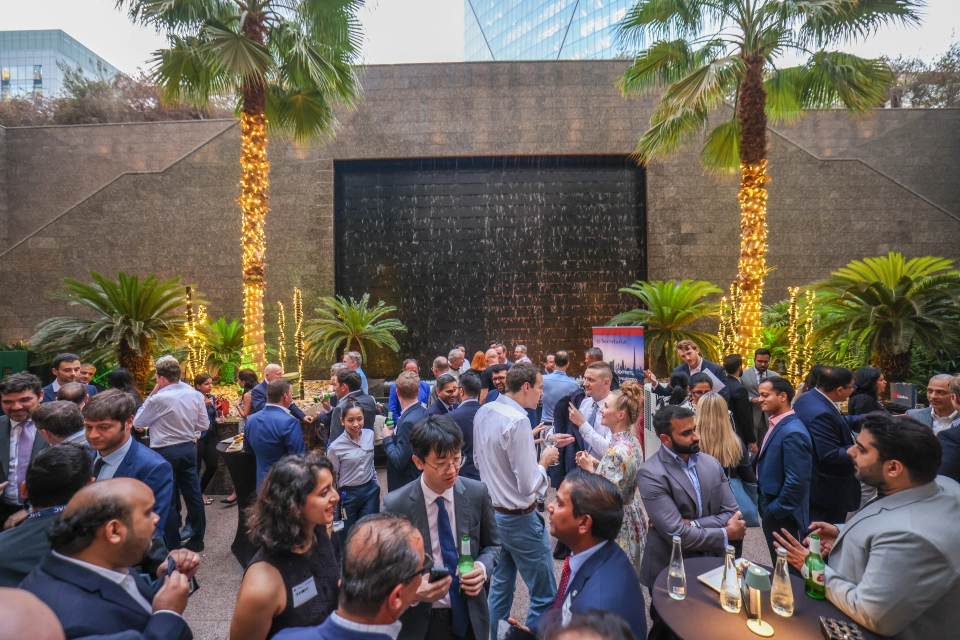
Wednesday, November 13
Mike Saulsbury led Secretariat’s lineup of discussions on Day 3, speaking on a panel titled “Enhanced Productivity or Potential Pitfall? Understanding the Use of AI in Arbitration from Every Angle.” The panel, part of Exponent’s “Let’s Talk Practical Use of AI” conference at DAW, gave industry experts and arbitrators an opportunity to discuss the power — and shortcomings — of large language models used in typical legal support software. Mike explored these topics with moderator Shane Kennett, PhD,PE,CWI (Exponent) and fellow panelists Emma Nierinck (Mantle Law), Sanjay Patel KC (4 Pump Court), and Kaitlin Spak, PhD, PE (Exponent).
Later that morning, Stephen Millington and Ralph Stobwasser participated in a panel discussion on “Criminal Law and Enforcement Considerations in Arbitral Proceedings” alongside Ben Jones (Greenberg Traurig) and Florence Jerome-Ball (Greenberg Traurig).The panel discussed vital considerations for white-collar crime in arbitrations, the interplay between criminal proceedings and arbitration proceedings, and current considerations from an enforcement and asset recovery perspective.


Thursday, November 14
Ian Greenhough led Secretariat’s discussions on Thursday morning, speaking at Limeslade’s Construction and Law Masterclass on the topic of AI/Tech in construction disputes.
Ian delved into key questions on how AI is transforming construction and dispute resolution with fellow panelists Michael Wheater KC (Gatehouse Chambers), and Nick Oury (Herbert Smith Freehills). The discussion also explored the latest AI tools available and the potential for automation in the field.
We capped off the week by rocking out at the 9th annual Law Rocks! Dubai Event at Bla Bla Dubai. Secretariat is a proud sponsor of Law Rocks! Dubai and was thrilled to continue our support of this fantastic event. We saw terrific performances from all participating bands and tremendous funds raised for the organizations benefiting charities, Dubai Health and the Al Jalila Foundation.
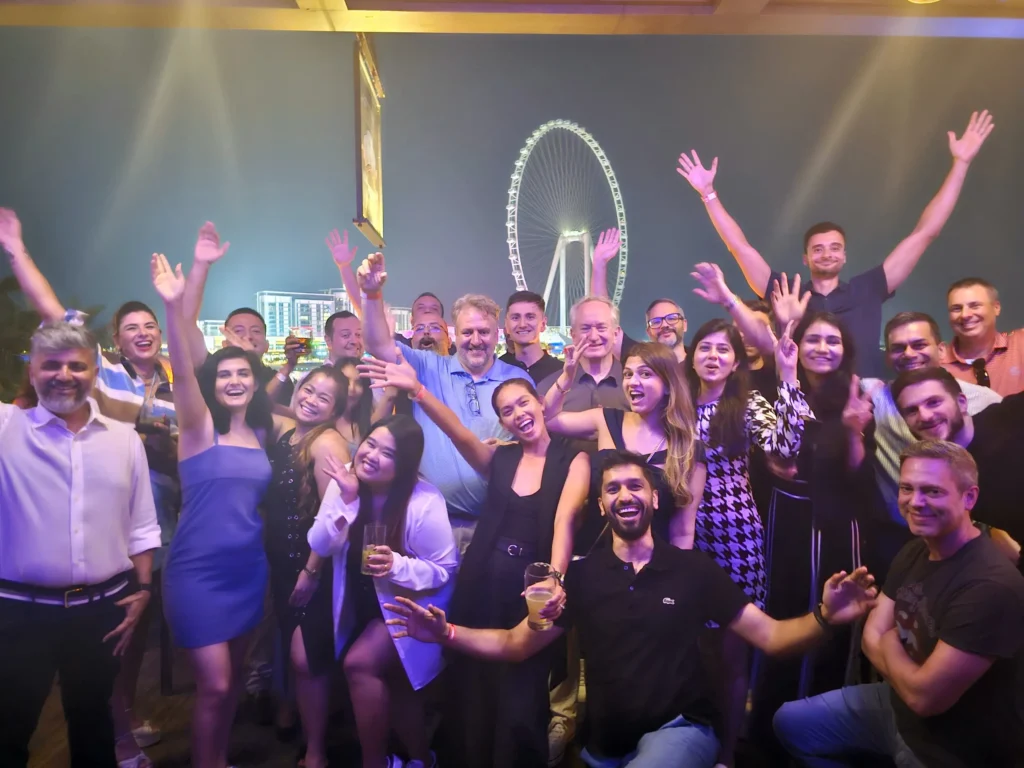
Richard Manning provided trial testimony that contributed to a decisive legal victory for biotech startup Inhibrx in a $460 million trade secrets case brought by I-Mab Biopharma in Delaware federal district court.
Secretariat was engaged by law firms Potter Anderson and Wilson Sonsini to provide expert testimony and respond to Plaintiff’s damages claims for this case on behalf of their clients, Inhibrx Biosciences and Inhibrix co-founder Dr. Brendan Eckelman.
On November 1, 2024, a federal jury in the US District Court for the District of Delaware unanimously sided with Inhibrx, rejecting all allegations of misappropriation and finding that the data in question did not qualify as legally-protectable trade secrets.
“I am pleased that my testimony was accepted by the court and helped the jury reach a verdict,” said Dr. Manning. “I trust that my economic analysis, combined with my prior experience in the biopharmaceutical industry, helped the jury understand the facts of this complex, high-stakes case.”
I-Mab filed the lawsuit on March 1, 2022, claiming that Inhibrx and Dr. Eckleman misappropriated confidential information related to I-Mab research projects during prior arbitration proceedings involving I-Mab, for which Dr. Eckelman had served as an expert witness. The Delaware jury found no basis for these claims and awarded the plaintiff $0 in damages, based in part on Dr. Manning’s testimony. The jury’s findings marked a complete victory for Inhibrx and Dr. Eckelman.
Read more about this case on Law360 (subscription required).
Secretariat, the leading disputes, investigations, economics, and expert witness advisory firm, welcomes material sciences and engineering expert Eric Guyer, PhD, as a Managing Director in the firm’s Atlanta office. With Dr. Guyer’s arrival, Secretariat establishes a new Engineering & Scientific Consulting practice, expanding the firm’s services for global law firm and corporate clients, and ushering in the next phase of the firm’s growth strategy.
Dr. Guyer joins Secretariat from Exponent where he held the role of Group Vice President for US, Asia and London Offices and Principal Engineer. As a licensed Professional Engineer, he brings more than 20 years of experience as one of the most respected and trusted experts in product failure analysis and investigations. His background spans multiple industries, with particularly deep experience in the automotive, construction, medical device, and consumer electronics sectors. Based on his extensive research into how and why devices or structures fail, Dr. Guyer is sought out as both a consultant to analyze the root causes of product fracture, fatigue, and corrosion, as well as an expert witness in high-stakes litigation.
“Secretariat has built a reputation as the home of the best-of-the-best experts. It’s a position we take seriously, and it guides us as we carefully consider who we bring on to our team. I can honestly say Eric Guyer is the very definition of this kind of professional,” says Secretariat Managing Director Don Harvey. “Eric’s wealth of knowledge and leadership skills make him the ideal person to launch our new Engineering & Scientific Consulting practice. This new focus area is a natural next step in our strategic growth as we focus on being clients’ first choice when facing daunting legal, risk, and regulatory challenges.”
“When I considered the kind of firm that was the right fit to join and establish a new practice, a commitment to quality and integrity were critically important. It quickly became apparent that Secretariat was the perfect combination of these qualities and has an excellent reputation in the industry,” says Dr. Guyer. “As I engaged with the leadership team and learned the story behind the firm’s success, it was clear in my mind that Secretariat was the ideal destination for my vision. I feel empowered and excited for the future as we build a premier team of scientists, engineers, and regulatory experts.”
Under Dr. Guyer’s leadership, Secretariat’s new Engineering & Scientific Consulting practice will provide the critical research, analysis, and investigations expertise necessary to solve the challenging science, engineering, and regulatory questions behind why products fail and the implications for consumers, businesses, and investors. The new practice complements Secretariat’s other service lines, including Construction Disputes, Damages & Valuations, Intellectual Property, Antitrust, and Investigations, to establish a world-class, expert-led team of nearly 600 professionals across the firm.
The recent GRC Summit, proudly hosted by Secretariat in collaboration with The Wealth Today, brought together more than 300 industry leaders, government officials, and financial experts to discuss crucial topics including governance, risk, cybersecurity, AML, ethical leadership, crisis management, and emerging technologies.
We are excited to spotlight takeaways from some of our esteemed participants who attended the GRC Summit. In doing so, we aim to provide insights and diverse perspectives that emerged from our discussions. These highlights underscore the collaborative spirit and innovative thinking that defined the event.

“The Summit was a great forum to hear insights from senior, influential leaders on important, topical issues and discuss the latest developments in the financial industry. It provided a fantastic opportunity to network, build connections, and facilitate deeper relationships with colleagues throughout the UAE and Asia.
“The event’s panels allowed for a range of perspectives to be shared, ensuring the audience could fully understand how different actors in the market (regulators, corporates, consultants, etc.) approach the same issues.”
— Greg Hallahan, Managing Director
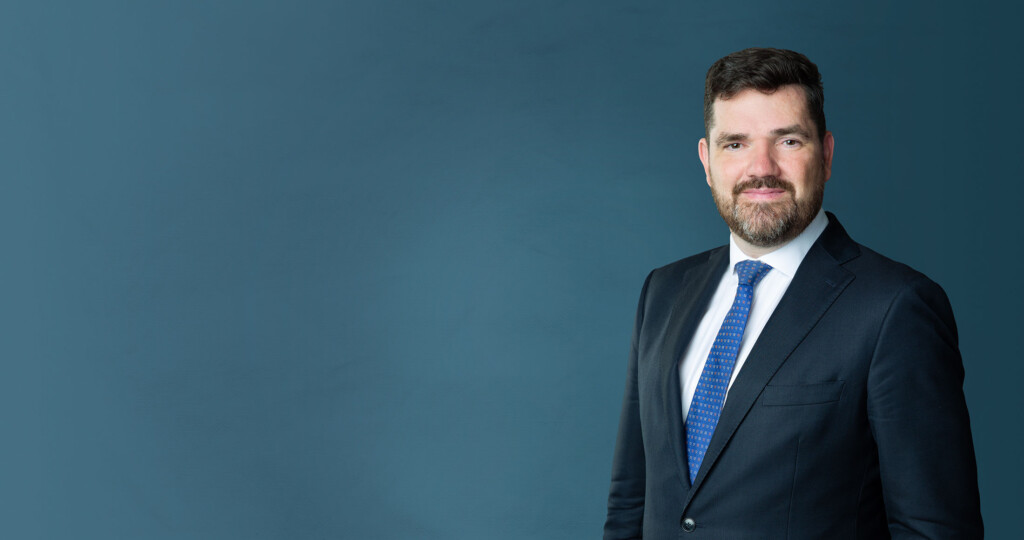
“I had the privilege of moderating a panel discussion on whistleblower programs alongside a distinguished panel of experts. It was an honor to share insights and underscore the importance of cultivating environments that encourage internal reporting of misconduct and promoting a strong speak-up culture in today’s global landscape.
“The Summit allows leading experts to share insights on how to adapt to an ever-evolving legal landscape, helping corporations, regulators, and consultants feel better equipped to navigate today’s complex global environment.”
— Stephen Millington, Managing Director

“The diversity of perspectives offered at the Summit brought tremendous value to conversations about the most critical GRC challenges we’re facing today. We were fortunate to hear from industry leaders, and our discussions were enriched by contributions from top global firms.
“This event perfectly reflected Secretariat’s belief in the power of collective learning, allowing us to share knowledge and help shape the future of Governance, Risk, and Compliance.”
— Bhavin Shah, Managing Director
We extend our heartfelt thanks to all the speakers and attendees who made this event a success. Together, we are driving innovation in our industry and building a more resilient, compliant world.
by Jillian Rathbone
This article was originally posted on The Australia Arbitration Week blog.
Hosted by Joel Glover of Secretariat Brisbane, the “Arbitration Across Generations” panel brought together experts from various backgrounds to explore how generational diversity is shaping arbitration practices. Panellists included John Lancaster from Secretariat Singapore, Lucy Martinez of Martinez Arbitration, Mark Dempsey SC, and Emily O’Brien from Level 27 Chambers. Together, they delved into mentorship, technology, generational dynamics, and the value of inclusion in the field of arbitration.
Here’s a look at the main takeaways from the event.
Generational Differences in Arbitration Approaches: Emails, Avoiding Phone Calls, Emojis, and Everything in Between
The event opened with a look at how generational preferences influence arbitration practices, particularly around technology, collaboration and communication. Lucy Martinez highlighted the rapid adoption of digital tools during the pandemic, and with it, the expectation to be responsive 24/7 that developed alongside. Zoom and Teams have shifted from a pandemic necessity to an arbitration staple, thanks to the digital familiarity of younger professionals.
Emily O’Brien spoke to the opportunities created by these generational differences, noting that each generation brings unique strengths to the table. The primary difference of preferred communication styles between Boomers and Gen X (telephone calls, cryptic texts “THX” or random emojis “🦁🦉 👍”), Millennials (emails) and Gen Z (definitely, absolutely, not phone calls) was discussed. Emily notes that it is crucial to have at least one “geriatric millennial” in each team, to bridge the gap between team members who understand technology and those who don’t. The conversation revealed that all approaches have their merits, and arbitration teams benefit from a blend of concise communication and detailed written correspondence.
Mark Dempsey reminded everyone that the beauty of a multi-generational team lies in this diversity of approach. When each generation plays to its strengths – whether it’s technology, strategy, or experience — you get an all-around better team. John Lancaster added that the trick is to combine these strengths: pairing younger professionals’ knack for digital tools with the tried-and-true wisdom that senior practitioners bring to the table.
Mentorship in Modern Arbitration: Combining Tradition with Innovation
Mentorship is foundational in arbitration, and while there are many more formal mentoring programs within companies and firms now, Lucy observed that the best mentorship relationships often occur more organically. Emily discussed the practical requirements, highlighting the need for both generosity of time and of spirit for both participants, as well as providing honest feedback. Modern mentorship increasingly involves technology with the advent of videoconferencing, allowing mentors and mentees to connect across borders, though John advised that face-to-face meetings still provide a unique dynamic that video calls can’t fully replicate. Mark added that mentorship is just as much about learning as it is teaching. Today, many senior arbitrators are learning from their younger counterparts, too—especially when it comes to tech.
Technology’s Role in Arbitration: From Paper Bundles to PowerPoints
Technology has changed the game in arbitration, both in case preparation and in the hearing room. John discussed how data analytics streamline evidence-gathering, enabling teams to manage data efficiently. But he warned against data overload, which can give cross-examiners ample material to dig for inconsistencies. Mark weighed in on virtual hearings, noting that while many appreciate their convenience, in-person hearings remain essential in cases where non-verbal cues and body language play a significant role in cross-examination. Lucy noted the shift from paper-based to electronic hearings, citing benefits for both practicality and the environment, though she recommended checking each arbitrator’s preferences, and more importantly, ensuring no one steps on crucial cables within the hearing room!
Client Perceptions and the Value of Diverse Expertise
Client expectations are evolving, though younger experts may still encounter credibility challenges due to their age. John suggested that younger professionals could build credibility by focusing on niche areas and gaining hands-on experience. Mark noted that sectors like construction are becoming more receptive to younger experts, who bring fresh perspectives (and fewer grey hairs.) Emily added experienced clients can make for more collaborative case strategies —just watch out for any emoji misunderstandings in the emails.
Diversity and Inclusion in Arbitration: Progress and Room for Growth
A push for diversity is slowly reshaping arbitration panels and influencing inclusion initiatives. Both Mark and Lucy acknowledged the strides made in gender representation but noted that ethnic and regional diversity still need improvement, especially appointments for arbitrators from Asia, Africa. Emily echoed the sentiment, saying diversity brings fresh perspectives that enhance decisions in arbitration. The panel agreed that mentorship programs are key to fostering inclusion and opening doors for underrepresented voices in arbitration.
Challenges and the Future of Arbitration
The panel closed with a look to the future of arbitration. Mark emphasised that while Big Data and AI can be powerful, we need to avoid drowning in information overload. “It’s more important than ever,” he said, “to step back, think deeply, and focus on the fundamental issues.” As Lucy noted at the beginning of the discussion “AI won’t take your job, but someone using AI might.” John and Emily addressed the role of predictive analytics and AI, with John cautioning that while using technology streamlines case preparation, over-reliance on it may limit younger experts’ skill development. For now, he remains cautious about AI’s potential in predictive analytics, finding it less suited for the nuanced, variable nature of arbitration cases. “It’s going to be a push-and-pull scenario for a while,” he concluded, as technology advances, but human judgment remains as the necessary handbrake.
Practical Advice for Newcomers
In closing, the panel offered practical advice for those stepping into the field. Mark highlighted the importance of observing and learning from experienced colleagues, as well as following the expert’s code to maintain independence and honesty. He encouraged new experts to stay courteous but firm, remember the importance of communication, and to develop the craft of clear, unbiased explanations — especially when under cross-examination. Lucy emphasised the need for clarity, especially when addressing international audiences who may face language, common law or cultural differences.
Emily, newer to the field herself, gave relatable advice: “Prepare, prepare, and then prepare some more.” Over-preparation, she said, builds confidence, allowing new practitioners to approach cases with a level of expertise that makes them feel ready to handle surprises. For John, preparation is also a means of self-preservation. “Every case” he joked, “could be the one that ends my career,” but so far, staying thorough has helped him avoid that fate.
Conclusion
The “Arbitration Across Generations” panel emphasised that while arbitration is evolving, the fundamentals remain: collaboration, mentorship, technological advances and a dash of humour (and maybe an emoji or two). And if this conversation was any indicator, the future of arbitration is in good hands — old, young, and everyone in between.
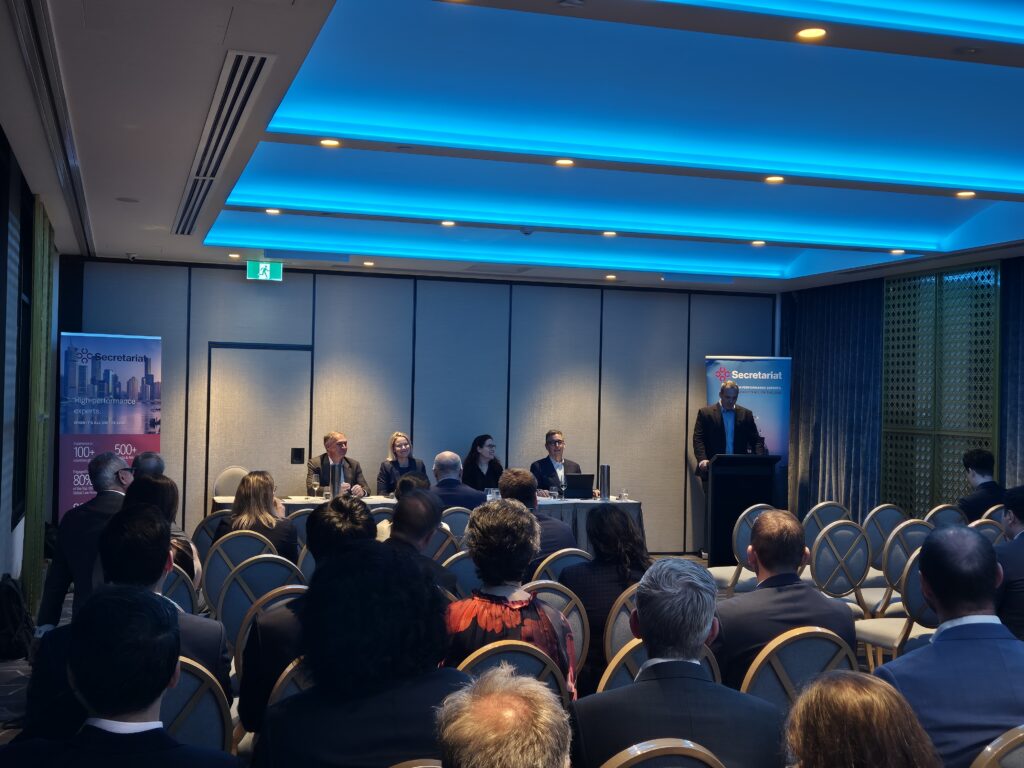
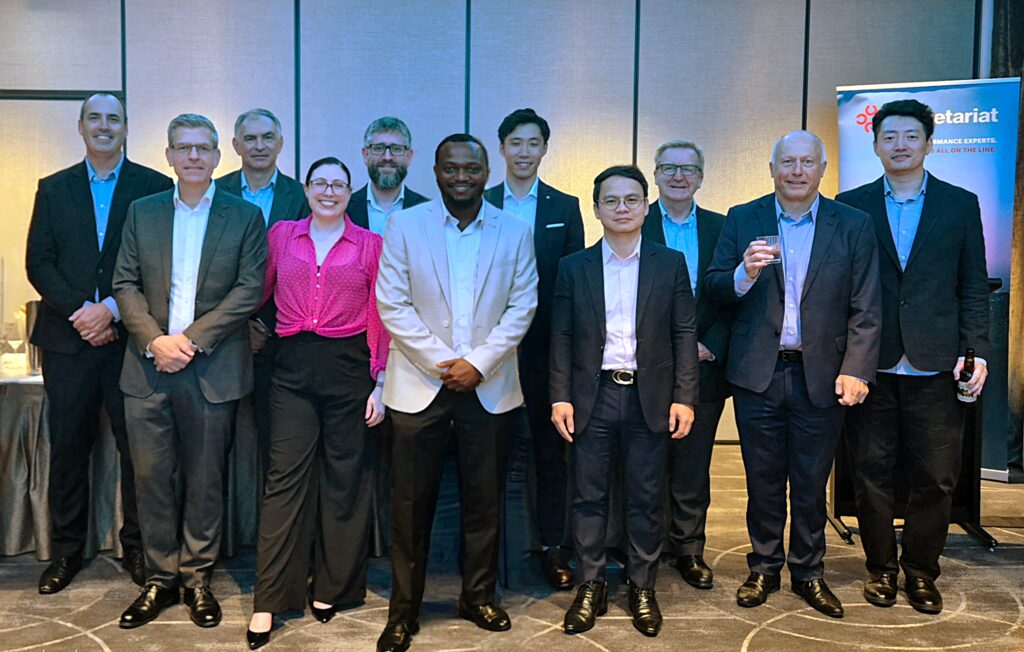
The UK’s Economic Crime and Corporate Transparency Act (ECCTA) represents a significant regulatory shift, holding businesses accountable for preventing fraud across their operations, including their third-party networks.
With no statutory defence for a “failure to prevent fraud,” organisations are now required to demonstrate comprehensive fraud prevention measures. Senior management is under increased scrutiny, tasked with proactively managing fraud risks, and facing the potential for prosecution. The repercussions are serious, ranging from unlimited fines and reputational damage to heightened regulatory oversight. Strengthening fraud risk management frameworks is now imperative to meet these enhanced regulatory obligations.
In this series of articles for Governance & Compliance magazine, Secretariat Managing Director Hitesh Patel and Director Ben Boorer explore the extensive reach and practical implications of the ECCTA, providing insights into how businesses can effectively navigate the challenges imposed by the Act.
Read the full articles (subscription may be required):
Failure to prevent fraud – what you don’t know could hurt you
How ECCTA changes the game for fraud risk management
Managing Director Matt Farber provided trial testimony on behalf of SVV in patent litigation involving the infringement of patents covering optics and LED lighting technologies.
Secretariat was retained by Katz PLLC on behalf of SVV Technology Innovations Inc. in patent litigation alleging monitors sold by Taiwanese technology firm ASUSTek Computer Inc. infringed SVV patents covering optical film. Dr. Farber and Katz PLLC worked with Caldwell Cassady & Curry in the trial phase of the matter.
The September 26 verdict was reached after a four-day trial in the U.S. District Court for the Western District of Texas in Waco. The jury found that ASUSTek’s infringement of all claims of the four SVV patents was willful, and that ASUSTeK owed SVV $22,400,000 in damages, an amount based on Dr. Farber’s opinions.
Dr. Farber submitted an extensive report and testified at trial to his analysis and opinions regarding a reasonable royalty. Dr. Farber’s work was supported by Matt Fitzgerald, Alex Gisquet, and Jack Schwartz.
The patents involved are U.S. Patent Nos. 8,290,318, 9,880,342, 10,439,089, and 10,627,562. The case is SVV Technology Innovations Inc. v. ASUSTek Computer Inc., No. 6:22-cv-00311.
Law360 and Bloomberg Law (subscriptions may be required) coverage may be found here and here.
Related: “Jury Awards $10.3 Million in Acer Patent Suit”
Secretariat, the global disputes, investigations, economics, and expert witness advisory firm, welcomes Managing Directors Ian Greenhough and Ralph Stobwasser as senior-level leaders to the firm’s Dubai office. Greenhough and Stobwasser join at a time of tremendous growth for Secretariat globally and in the Middle East and North Africa (MENA) region, adding expertise to the firm’s Construction Quantum and Investigations & Regulatory Advisory practices respectively.
Ian Greenhough brings more than 23 years of experience in the construction industry with 17 years based in the Middle East. He is a seasoned testifier and has been appointed on multiple occasions as a quantum expert witness on projects in the Middle East and Europe with disputes in excess of US$250m. His experience includes major infrastructure works, renewable energy, power and technology/IT projects. Lexology Index (formerly Who’s Who Legal) recognizes Greenhough in “Thought Leaders – Arbitration,” noting he: “performs strongly under cross-examination,” is “great to deal with and I’d highly recommend him,” and highlights his “common-sense approach.” Greenhough earned a Graduate Diploma in Law (GDL) from Lancashire Law School and a Bachelor of Science from the University of Newcastle upon Tyne.
“I am delighted to join Secretariat and to be part of an award-winning global construction disputes team,” says Greenhough. “I look forward to contributing to the team’s success and advancing our impressive growth story in the region.”
Ralph Stobwasser has more than 20 years of experience leading large and highly complex investigations, remediation, asset tracing, and due diligence assignments. His sector expertise and client coverage spans government and public sectors, financial services, sovereign wealth funds, and public and private corporations in the Gulf Cooperation Council (GCC) and wider Middle East. He has developed a reputation as a trusted advisor to a broad client base in the legal community in the Middle East, Europe, and United States where he is regularly engaged to provide litigation support and strategic advice in special situations. Stobwasser earned a Master’s Degree in Middle Eastern Studies from Freie Universität Berlin and an Undergraduate Degree from Universität Freiburg.
“The team Secretariat is assembling, globally and in the MENA region, represents some of the most respected and trusted leaders who handle high-stakes investigations and regulatory matters,” says Stobwasser. “The opportunity to join this impressive team and build the Secretariat brand marks an exciting chapter in my career.”
Welcoming both leaders to the firm, Managing Director Don Harvey notes, “Ian and Ralph embody the special kind of talent we look to add to our roster – passionate problem solvers who have earned the distinction of being trusted advisors by delivering the highest-quality work. I am excited to call both of them colleagues.”
Secretariat is pleased to announce the opening of our Montréal office. This new location expands our construction disputes and advisory capabilities with the addition of two key Directors — Etienne Berge and Georges Bader. The opening of Secretariat’s Montreal office illustrates our impressive growth in Canada and our ability to serve clients needs across all major markets.
Secretariat’s Antitrust team plays a vital role in supporting expert witness Dr. Kinshuk Jerath’s testimony on behalf of the successful U.S. Plaintiffs in this landmark decision.
In this week’s landmark United States v. Google decision, Secretariat’s Antitrust team, led by Managing Director Dr. Keith Waehrer, supported the analysis and work of expert witness Dr. Kinshuk Jerath, on behalf of the successful U.S. plaintiffs.
Dr. Jerath’s analysis and testimony centered on topics related to advertising markets and Google’s anticompetitive behavior and dominance in the text advertising market in particular. Judge Amit Mehta’s decision made particular note of Dr. Jerath’s testimony, citing that “The marketing funnel is neither ‘dead’ nor had it become ‘obsolete’ because of the emergence of digital marketing and new ad technologies,” and industry professionals “… continue to use the funnel to shape marketing strategies, even on digital platforms.”
Dr. Jerath is the Arthur F. Burns Professor of Free & Competitive Enterprise & Advisor in Digital Marketing at the Columbia Business School, Media and Technology Program. Secretariat’s team included John Gale, Trevor Larner, Josh Higham, and Ty Ehuan.
Richard Brady, Aminta Raffalovich, Steven Schwartz, and Jennifer Vanderhart authored a chapter in The Guide to Damages in International Arbitration – Sixth Edition. The guide is designed to assist the global arbitration community in understanding damages issues. The chapter is titled “The Use of Econometric and Statistical Analysis in Damages.”
The full guide is available online here.
